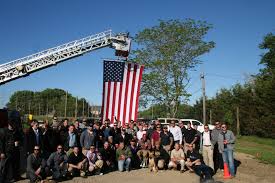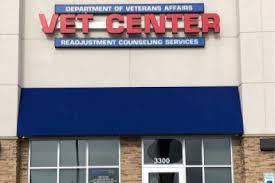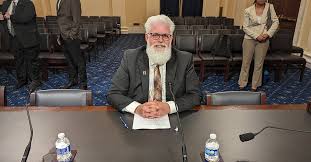Charities That Help Veterans
There are numerous charities dedicated to supporting veterans who have served their country with honor and courage. These organizations play a crucial role in providing assistance, resources, and services to help improve the lives of veterans and their families. Here are some notable charities that make a difference in the lives of those who have served:
Fisher House Foundation
The Fisher House Foundation provides free or low-cost lodging to veterans and military families receiving treatment at military medical centers. They offer a “home away from home” for families during difficult times.
Wounded Warrior Project
The Wounded Warrior Project offers a variety of programs and services to support wounded veterans, including mental health programs, career counseling, and adaptive sports opportunities.
Homes for Our Troops
Homes for Our Troops builds specially adapted homes for severely injured post-9/11 veterans. These homes are designed to accommodate the specific needs of each veteran, enabling them to live independently.
Operation Homefront
Operation Homefront provides emergency financial assistance, transitional housing, and other critical support services to military families and wounded warriors. They aim to build strong, stable, and secure military families.
These are just a few examples of the many charities that work tirelessly to support our nation’s veterans. By donating your time or resources to these organizations, you can help make a positive impact on the lives of those who have sacrificed so much for our country.
5 Key Benefits of Charities Supporting Veterans: Essential Resources, Specialized Programs, and Community Building
- Provide essential support and resources to veterans in need
- Offer specialized programs for wounded and disabled veterans
- Help veterans transition back into civilian life through various services
- Create a sense of community and camaraderie among veterans and their families
- Raise awareness about the challenges faced by veterans and advocate for their well-being
Six Key Concerns About Charities Supporting Veterans: Efficiency, Transparency, and Accessibility
- Some charities may have high administrative costs, reducing the amount of funds that directly benefit veterans.
- Not all charities are transparent about how donations are used, leading to uncertainty about the impact of contributions.
- Certain charities may focus on specific veteran populations, potentially leaving out those in need who do not fit their criteria.
- There can be competition among charities for funding, which may result in duplication of efforts and resources.
- Charities may face challenges in reaching veterans who are isolated or lack access to information about available services.
- In some cases, veterans may encounter difficulties in verifying the legitimacy and effectiveness of certain charity organizations.
Provide essential support and resources to veterans in need
Charities that help veterans play a vital role in providing essential support and resources to veterans in need. These organizations offer a variety of services such as financial assistance, housing support, mental health programs, career counseling, and more. By offering these crucial resources, charities help veterans navigate challenges they may face after their service and improve their overall well-being. This pro highlights the significant impact that charities have in ensuring that veterans receive the necessary support to lead fulfilling and successful lives post-service.
Offer specialized programs for wounded and disabled veterans
Charities that help veterans offer specialized programs for wounded and disabled veterans, catering to their unique needs and challenges. These programs provide essential support, resources, and services tailored to assist veterans in their recovery and rehabilitation journeys. By focusing on the specific requirements of wounded and disabled veterans, these charities play a crucial role in improving their quality of life, promoting independence, and enhancing their overall well-being. Through these specialized programs, veterans are empowered to overcome obstacles, regain confidence, and rebuild their lives with dignity and resilience.
Help veterans transition back into civilian life through various services
Charities that help veterans play a crucial role in assisting veterans to transition back into civilian life through a variety of services. These organizations provide support in areas such as job training, mental health counseling, housing assistance, and educational opportunities. By offering these vital services, charities help veterans navigate the challenges of returning to civilian life after their military service, ultimately enabling them to reintegrate successfully and thrive in their post-service endeavors.
Create a sense of community and camaraderie among veterans and their families
Charities that help veterans play a crucial role in creating a sense of community and camaraderie among veterans and their families. By bringing together individuals who have shared similar experiences and challenges, these organizations provide a supportive network where veterans can connect, share stories, and offer each other emotional support. This sense of community helps combat feelings of isolation and loneliness that some veterans may experience as they transition back to civilian life. Additionally, by fostering a strong sense of camaraderie, these charities help veterans build lasting relationships and bonds that can provide comfort and encouragement during difficult times.
Raise awareness about the challenges faced by veterans and advocate for their well-being
Charities that help veterans play a crucial role in raising awareness about the challenges faced by veterans and advocating for their well-being. By shedding light on the struggles that veterans encounter, these organizations educate the public about the sacrifices made by those who have served in the military. Through advocacy efforts, they work to ensure that veterans receive the support and resources they need to lead fulfilling lives after their service. By amplifying their voices and sharing their stories, charities help to build a more supportive and understanding community for veterans.
Some charities may have high administrative costs, reducing the amount of funds that directly benefit veterans.
Some charities that help veterans may face the con of high administrative costs, which can diminish the overall impact of their efforts. When a significant portion of donations is allocated to administrative expenses rather than directly benefiting veterans, it can be a cause for concern among donors. It is essential for donors to research and carefully evaluate charities to ensure that their contributions are used efficiently and effectively to support veterans in need. Transparency and accountability in financial practices are crucial in ensuring that veterans receive the maximum benefit from charitable donations.
Not all charities are transparent about how donations are used, leading to uncertainty about the impact of contributions.
One significant downside of charities that help veterans is the lack of transparency regarding how donations are utilized. This lack of transparency can create uncertainty among donors about the actual impact of their contributions. Without clear information on how funds are allocated and spent, donors may hesitate to support these charities, fearing that their donations may not be put to effective use in supporting veterans in need. It is crucial for charitable organizations to be transparent about their financial practices and outcomes to build trust with donors and ensure that donations are making a meaningful difference in the lives of veterans and their families.
Certain charities may focus on specific veteran populations, potentially leaving out those in need who do not fit their criteria.
One con of charities that help veterans is that certain organizations may focus on specific veteran populations, which could inadvertently exclude those in need who do not meet their specific criteria. For example, a charity may prioritize providing assistance to post-9/11 veterans, leaving out veterans from earlier conflicts or peacetime service. This limitation can result in some veterans not receiving the support they require, highlighting the importance of ensuring inclusivity and accessibility in charitable efforts aimed at helping all veterans in need.
There can be competition among charities for funding, which may result in duplication of efforts and resources.
One significant drawback of charities that help veterans is the potential competition for funding among these organizations. This competition can lead to a duplication of efforts and resources, where multiple charities may be working towards similar goals without effectively coordinating their efforts. As a result, some resources may be wasted, and the impact of the assistance provided to veterans and their families may be diminished. It is crucial for these charities to collaborate and communicate effectively to ensure that their efforts are streamlined and maximize the support they can offer to those who have served our country.
Charities may face challenges in reaching veterans who are isolated or lack access to information about available services.
Charities that help veterans may encounter difficulties in reaching those who are isolated or lack access to information about the services they provide. Veterans living in remote areas or facing social isolation may not be aware of the support available to them. This challenge highlights the importance of outreach efforts and collaboration with community organizations to ensure that all veterans, regardless of their circumstances, have access to the assistance they need. By addressing these barriers, charities can better serve those who have served our country.
In some cases, veterans may encounter difficulties in verifying the legitimacy and effectiveness of certain charity organizations.
In some instances, veterans may face challenges in verifying the credibility and impact of specific charity organizations that claim to support them. Due to the sheer number of charities that help veterans, it can be daunting for individuals to discern which organizations are truly effective in their mission and how donations are utilized. This lack of transparency and accountability within certain charities can lead to skepticism and uncertainty among veterans seeking assistance, highlighting the importance of thorough research and due diligence before engaging with any charitable organization.




